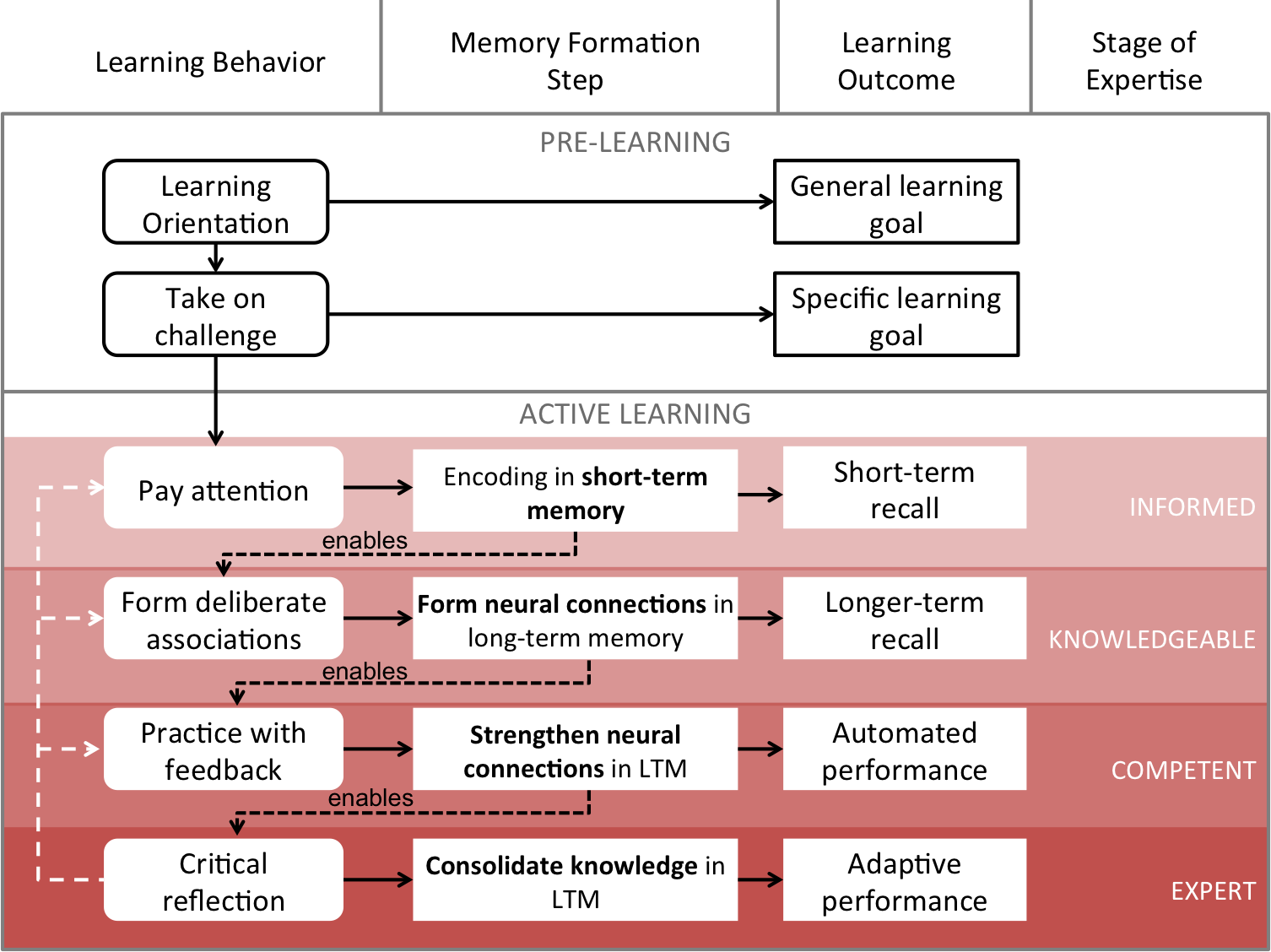

Learning As Behaviors (LABS) Model
Learning for Work: DEVELOPING NEW EXPERTISE
The Learning As Behaviors (LABS) Model of Expertise Development integrates research from management, cognitive psychology, educational psychology and neuroscience to describe the process of how a novice achieves expertise. Defining expertise as the ability to perform in novel situations, the model provides intermediate stages of expertise along with the learning behaviors that culminate in that ability.
Learning from Work: LEARNING AGILITY
Learning agility is gaining traction as a key competency in dynamic business environments. It has been defined "ability to come up to speed quickly in one’s understanding of a situation and move across ideas flexibly in service of learning both within and across experiences" (DeRue et al., 2012 p262).
Working to Learn: CRITICAL REFLECTION
One of the most difficult transitions in developing expertise is moving from being highly competent to being an expert. The difference lies in the ability to adapt to novel situations within the domain of expertise.
rigolizzom@montclair.edu

